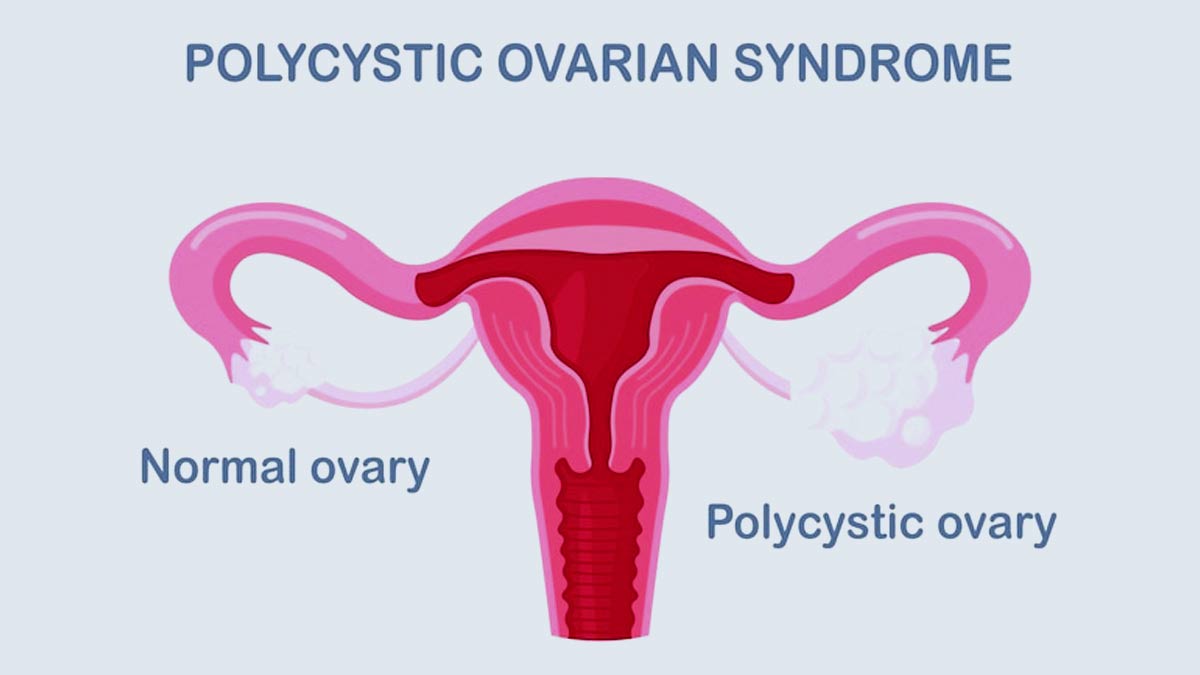
Polycystic Ovary Syndrome (PCOS) is a common hormonal disorder, often leading to various health challenges, including irregular periods, insulin resistance, and inflamed ovaries. These symptoms can lead to various health issues, such as weight gain, diabetes, cardiovascular problems, and fertility challenges.
Table of Content:-
While there is no cure for PCOS yet, a well-balanced diet and a healthy lifestyle play a crucial role in managing its symptoms. One dietary approach that has gained significant attention in this regard is the Mediterranean diet. According to a study by Molecular Diversity Preservation International, a low-calorie diet full of antioxidants and herbs, seems to be highly effective in combating chronic inflammation caused by PCOS. The Mediterranean diet fully encompasses these dietary requirements to manage PCOS.
Benefits of The Mediterranean Diet Against PCOS

The Mediterranean diet is not just a diet; it's a lifestyle that's been practised for centuries in regions bordering the Mediterranean Sea. It emphasises whole, unprocessed foods, primarily plant-based, and healthy fats, with moderate consumption of lean protein and low intake of refined sugars and saturated fats. Here's why it's an excellent choice for managing PCOS:
Balanced Macronutrients
The Mediterranean diet provides a balanced mix of carbohydrates, fats, and proteins. This balance helps regulate blood sugar levels, which is crucial for individuals with PCOS, as insulin resistance is a common issue.
Also Read: PCOS Diet: Foods To Eat And Avoid To Relieve Symptoms
Fibre-Rich Foods
It's rich in fibre from fruits, vegetables, whole grains, and legumes. Fibre helps stabilise blood sugar levels, promote regular bowel movements, and reduce insulin resistance.
Healthy Fats
This diet encourages the consumption of healthy fats, primarily from sources like olive oil and fatty fish (eg salmon and mackerel). These fats have anti-inflammatory properties and can help reduce inflammation often associated with PCOS.
Antioxidants Galore
The Mediterranean diet is loaded with antioxidants from colourful fruits and vegetables, which can help combat oxidative stress associated with PCOS.
Low in Processed Foods
The Mediterranean diet limits processed foods, sugary snacks, and sugary drinks, which can contribute to insulin resistance and weight gain—two critical concerns for those with PCOS.
Heart Health Benefits
This diet has been associated with a reduced risk of heart disease, which is important as individuals with PCOS are at a higher risk of heart-related issues.
Also Read: 5 Ways To Combat PCOS Weight Gain
Tips for Following The Mediterranean Diet

As PCOS severely affects the body mass index and insulin absorption, it can cause debilitating health issues such as diabetes, obesity, and cardiovascular diseases. The Mediterranean diet incorporates the following components that can help you keep your blood sugar in check, lower cholesterol levels, and assist your body in functioning well despite the challenges presented by PCOS:
Also Read: Weight Management Is Crucial For PCOS Patients, Expert Explains Why
- Plenty of Vegetables and Fruits: Aim for at least five servings of colourful vegetables and two to three servings of fruit per day.
- Choose Whole Grains: Opt for whole grains like quinoa, brown rice, and whole wheat bread instead of refined grains.
- Healthy Fats: Replace saturated and trans fats with olive oil, nuts, and seeds.
- Lean Protein: Include lean protein sources such as poultry, fish, and legumes in your diet.
- Moderate Dairy: Choose low-fat or non-fat dairy options in moderation.
- Hydration: Stay hydrated with water and herbal teas. Limit sugary drinks and excessive caffeine.
- Regular Exercise: Combine the Mediterranean diet with regular physical activity to enhance its benefits.
The Mediterranean diet, with its focus on whole, nutritious foods and balanced macronutrients, can be a powerful tool for managing the symptoms of PCOS. By embracing this lifestyle, individuals with PCOS can improve their insulin sensitivity, reduce inflammation, and promote overall well-being. Always consult with a healthcare professional or a registered dietitian before making significant dietary changes, especially if you have PCOS or any other medical condition.
Also watch this video
How we keep this article up to date:
We work with experts and keep a close eye on the latest in health and wellness. Whenever there is a new research or helpful information, we update our articles with accurate and useful advice.
Current Version